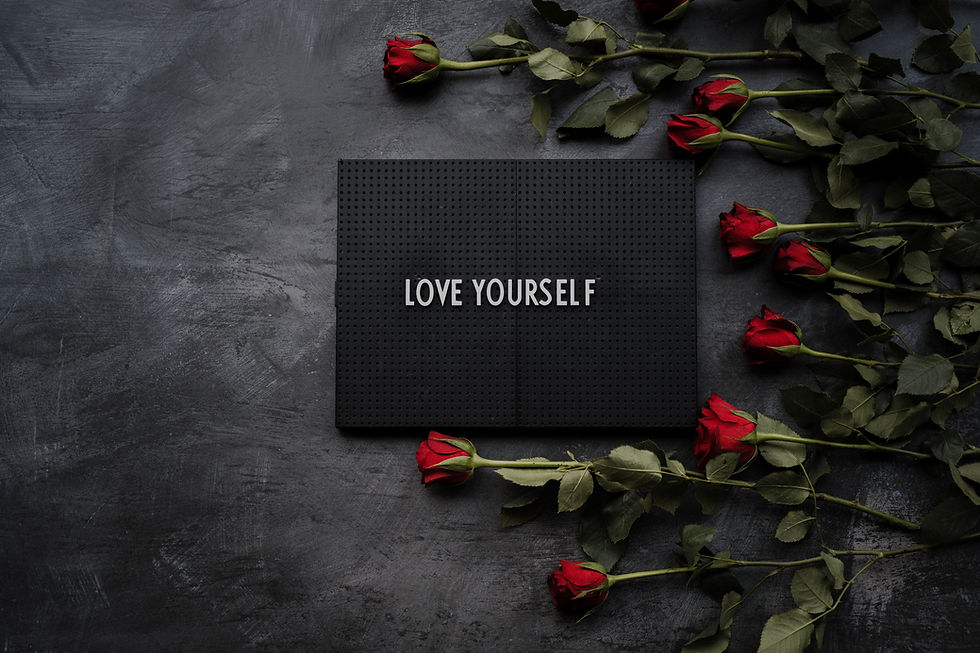Unleashing Happiness: The First Small Step Is Self-Compassion
- Cecilia Hendrix

- Oct 4, 2025
- 5 min read
This blog is a review and recap of Unleashing Happiness podcast. I’ve decided to keep the name because it feels right for what this podcast—and this message—is all about. My mission is to help you find your own version of happiness by reconnecting with your spark and becoming the truest version of yourself.
If you’ve ever woken up and thought, I’m not sure this is what I wanted out of life, you’re not alone. And you don’t need a three-hour morning routine or an ice bath to make actual improvements to your life. What makes a real difference is learning how to treat yourself with kindness and compassion, especially when life feels full and messy.
You don’t need hours of meditation or a cold plunge.
Key Takeaways
Self-compassion isn’t selfish; it’s what helps you show up as your best self.
The way you talk to yourself teaches your brain what to look for.
Awareness comes first—you can’t change what you aren't even aware needs to be changed.
The Loved-One Test helps you reframe negative self-talk.
Small, realistic changes create lasting shifts in how you see yourself.
Regret can become information, not a life sentence.
You can start right now with a few simple, five-minute habits. I have a free guide that can help you.

Why Self-Compassion Comes First
Life is busy. Between work, kids, caretaking, and the daily list of things that need to get done, adding “perfect routines” to the mix can feel like another chore. I used to think I had to overhaul everything to feel better, but what really changed things for me were the small, consistent acts of self-compassion.
Studies have shown how avoiding self-care actually increases stress and reduces focus. You can read more of those here, here, and here. I ended confirming this by what I’d been seeing in my own life and in the people I work with.
The more we put ourselves last, the harder everything else becomes. You literally zap all of your reources giving and giving until you have nothing left for anyone.
When you start being kinder to yourself, a few things happen naturally:
You recharge and can show up better for the people you love.
Your energy returns, and decision-making gets easier.
You stop feeling like you’re just surviving and start feeling like you again.
The Loved-One Test
Here’s one small exercise that changes everything: notice how you talk to yourself. Would you say the same things to the person—or pet—you love most in the world? If not, what would you say to them? Try saying that to yourself instead.
Maybe you stumbled during a presentation and your mind immediately went to, I can’t believe I did that; I shouldn’t even be doing this job. But if your best friend said the same thing to you, you’d remind them that everyone stumbles and it’s not a big deal. You deserve that same kindness.
Thoughts vs. Facts
A thought is not a fact. You assign the meaning.
A thought isn’t always the truth. You get to decide how much power to give it. When a harsh thought shows up, label it and let it pass. Replace it with something more accurate and compassionate.
The more you practice this, the more you train your mind to default to supportive thoughts instead of critical ones.

Training Your Brain’s Filter
Inside your brain is a system called the reticular activating system, or RAS. I like to think of it as a “bouncer” that decides what gets your attention. If you tell your mind to look for reasons you’re failing, that’s what it will find. If you tell it to look for opportunities, it will spot those instead.
Each day, I ask myself how I can find more ways to be kind to myself. This simple act of asking a question gets my brain to work seeking an answer.
How the World Reflects Your Energy
People, and even life itself, tend to reflect back what we put out. When I approach the day with openness and compassion—for myself and others—the world feels more welcoming. The opposite is true too, which is why this internal work matters so much.
Turning Regret Into a Lesson
We all have moments we wish we could redo. I still remember being a teenager and being unkind to someone who didn’t deserve it. For years, I carried that memory and the guilt that came with it. Eventually, I realized I could either keep replaying it or learn from it.
That moment taught me who I want to be: someone who’s kind, even on a hard day. Regret can be a powerful teacher if we let it guide us instead of define us.
Self-compassion isn’t selfish; it’s a necessity that lets you give more.
Five-Minute Habits to Overcome Burnout
You don’t need hours a day to change your life. Start small:
Own your morning with a micro-win
Focus on gratitude
Move your body
Rediscover awe in the world
Give yourself the gift of a pause
I created a short guide that walks you through these in detail:
Download the free guide and start with one small habit today.
And if you know someone who could use a little more self-kindness in their life, share this post with them.
Remember, every choice you make has a ripple effect. Think about how choosing self-compassion can touch many other areas of your life.
FAQ
Does self-compassion make me less driven?
Not at all. It helps you stay grounded and focused so you can do more of what matters. Actually, this is one of the best ways to finally break your habit of mindlessly scrolling your phone.
How can I stop negative thoughts from taking over?
Train your brain to pause and start asking questions. Where is this thought coming from? Do I believe it? Do I want to believe it? You can also do grounding exercises to pull yourself back into this moment.
What if I don’t have time for self-care?
Start small. Even a five-minute break or a few kind words to yourself make a difference. I always suggest starting with Daily Joys.
Can this help me at work?
Yes. When you lower stress, your creativity and patience increase—something multiple studies and research has shown time and time again.
What if I can’t let go of past mistakes?
Look at them as lessons, not labels. Ask yourself, What did I learn, and how can I show up differently next time? Each time you lean into curiosity about your behavior and what you'd like to do next time, you are giving yourself a touch of insight that will help you in the future.






Comments